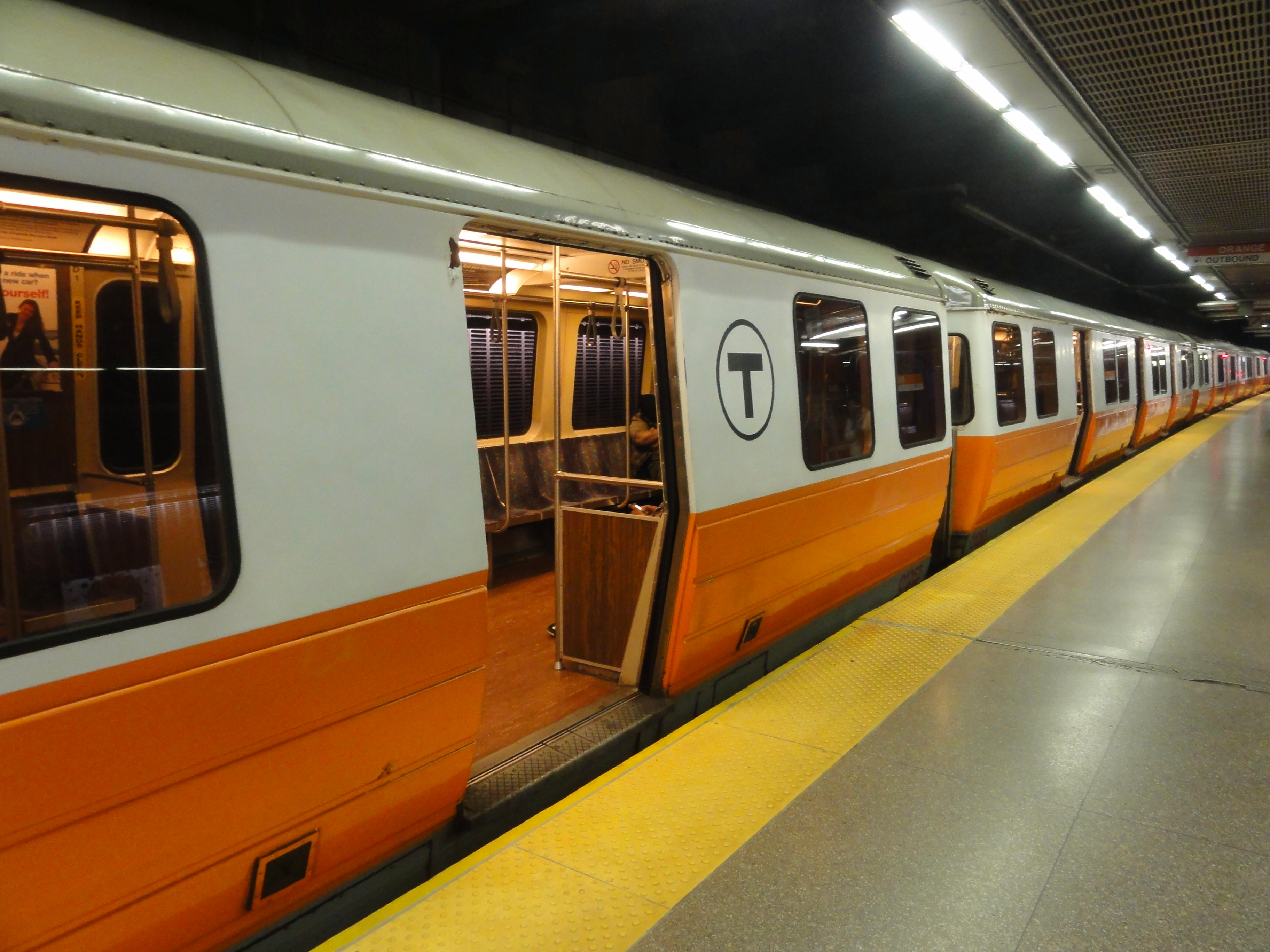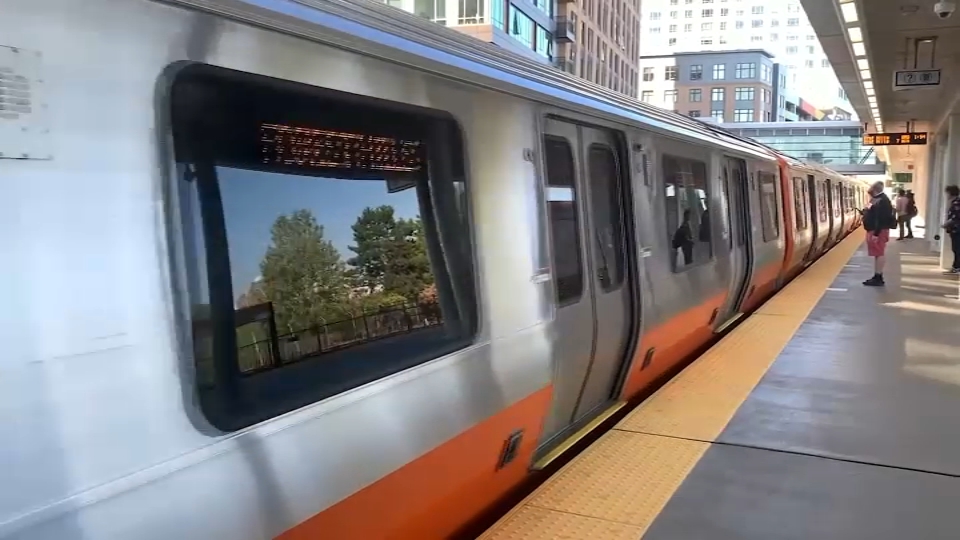After studying the crisis at the MBTA for months, top lawmakers concluded the Legislature should rethink the Department of Public Utilities' role as the state agency responsible for overseeing MBTA safety and floated a few other ideas that do not yet appear to have much traction across both branches.
The Transportation Committee, which had 20 members serving on it this term, published its final report Tuesday afternoon, just hours before the 2021-2022 term draws to a close, summing up the panel's three public oversight hearings held this year and reams of MBTA documents that lawmakers examined.
WATCH ANYTIME FOR FREE
>Stream NBC10 Boston news for free, 24/7, wherever you are. |
Most of the 78-page report provides a recap of the upheaval riders have faced at the MBTA and the intervention federal investigators made this spring and summer following a string of harrowing, sometimes deadly incidents.
Get updates on what's happening in Boston to your inbox. Sign up for our >News Headlines newsletter.
Rather than provide a set of recommendations with one unified voice for the entire panel, however, top Democrats opted for a different, bifurcated approach: co-chairs Rep. William Straus and Sen. Brendan Crighton each got a separate section of the report to detail what they believe should be "future areas of focus."
They both flagged the DPU's oversight of T safety, which the Federal Transit Administration dubbed insufficient, as an area primed for some kind of legislative action.
Crighton said he sees three options: keeping the DPU as the designated state safety oversight agency (SSOA) but "ensuring it can act as a proactive and independent entity," reassigning those responsibilities to another existing agency, or standing up a new, standalone agency tasked solely with MBTA safety oversight.
Straus, in his own batch of recommendations, suggested that safety oversight of the MBTA should be shifted away from the DPU, though he added that lawmakers would need input and certification from the FTA to do so.
"One option for consideration going forward is for the SSOA to be moved to an office that
is sufficiently 'walled off' from any administration. One choice for discussion (and there could be others) would be the Office of the Inspector General," the Straus section of the report said. "The existing IG appointment process permits the agency to operate free from political considerations that may be imposed by the governor or other gubernatorial appointees. If independence of the safety oversight agency is deemed to have merit, the forensic role played by the Inspector General is more in line with safety oversight, and an SSOA unit within that office is less likely to be viewed as a secondary mandate (by contrast, in its 2021 annual report, DPU devoted a total of four paragraphs in a 55-page report to its SSOA function)."
Beyond the DPU, none of Straus and Crighton's suggestions hit on the exact same topics.
Crighton, a Lynn Democrat, called for the MBTA to provide the public with more information about steps it is taking to improve safety. He said one especially useful option would be to compare the findings of an independent panel's 2019 report about MBTA safety failures and the FTA's 2022 report, then publish that information alongside "specific safety performance goals and annual tracking progress."
He also flagged staffing as a major area of concern at the agency, though stopped short of proposing specific action lawmakers and Gov.-elect Maura Healey should take during the 2023-2024 session to help the T contend with hiring challenges and worker attrition.
"It is readily apparent that the MBTA needs more employees to deploy safe and reliable service. Despite the incentives employed by the authority, hiring continues to be a major challenge," the Crighton section of the report said. "Some of these challenges have a national profile such as the struggle to employ bus drivers. It may be that T management and the unions need to rethink their approach to attracting today's workforce."
At one point, Crighton pointed to a part of a transportation bond bill approved this summer that sought to require the MBTA to submit regular reports to lawmakers about unfilled job positions, recent hires and training periods. Gov. Charlie Baker proposed an amendment to that measure in August, after the Legislature wrapped up its final formal sessions for the term, and lawmakers never took a vote on his suggested changes, allowing their original proposal to languish.
If lawmakers wish to revisit the topic of mandatory MBTA staffing reports under the incoming Healey administration, they will need to restart that lawmaking process from scratch next term, assuming they do not agree to Baker's changes in the final hours of Tuesday's session.
"While the Governor returned this Section to the Legislature with amendments, this remains a vital component of ensuring safe service," the Crighton section of the report said. "Progress on hiring initiatives must be a [sic] consistently monitored to determine if additional resources or strategies need to be implemented."
Straus's other ideas include creating more audit and whistleblower protections as well as one he floated at the panel's first hearing in July: dramatically reshaping the MBTA's responsibilities.
Via the committee's final report, the Mattapoisett Democrat suggested scaling the T down into a "leaner" agency that focuses only on operating bus and rapid transit service. He said lawmakers should consider moving the commuter rail -- which the T already contracts with Keolis to operate -- to the Department of Transportation's Rail and Transit Division or another office, shifting T ferries to a different agency, and offloading "large, complex capital projects" to MassDOT.
"The below items reflect a view for debate that the MBTA has been tasked with offering services and performing operations that extend beyond its charge of providing a public transportation option that makes it possible for residents of the Boston area and eastern Massachusetts to get from place to place safely, conveniently, reliably and on time," the report wrote while introducing that Straus idea. "One idea for consideration is that the MBTA be allowed to focus on its core mission of serving as the metropolitan region's bus and rapid transit service agency, thus allowing the authority to become a more responsive and efficient agency with an improved safety record."
Neither Straus nor Crighton made any clear suggestion about MBTA funding, which has long been an area of focus for transportation advocates who argue the T's enormous backlog of deferred maintenance and forecasted budget gaps require additional state investment. Straus, though, did note that many of his suggestions "raise questions concerning the need to amend the flow of existing dedicated transit funding."
Lawmakers this session made hundreds of millions of dollars in one-time funding available to the MBTA to help the agency complete corrective actions required by the FTA's investigation.
The chairs also used the final MBTA oversight report to renew their gripe with the FTA, whose staff rejected two invitations -- one before the federal investigation concluded and one after -- to appear before the Transportation Committee.
The report contended that federal overseers "fell short of their need to work with other public entities on this important question of public safety," pointing out that FTA officials spoke at press briefings and at a Congressional hearing in Boston that U.S. Sen. Elizabeth Warren convened but said they were prohibited by agency rules from participating in the state committee hearing.
Massachusetts legislators also said they have unanswered questions about federal rules governing the detection and mitigation of hazards at the T, writing that "a strong case can be made that the federal regulations may have delegated too broadly to the states in this area."



